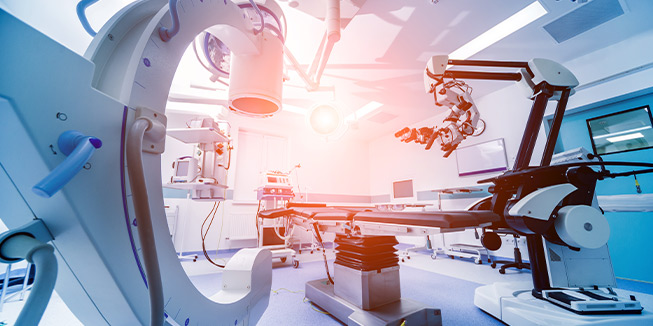The medical industry relies on various devices to provide the highest level of patient care, including diagnostic equipment, surgical tools, orthopedic devices, and much more. Due to the critical nature of medical applications, it is crucial that the components within these devices be highly accurate, safe, and suitable for long-term use. To meet the stringent requirements and standards of the medical industry, many manufacturers turn to precision medical machining. This process uses CNC technology to produce highly complex medical device components with optimal accuracy, quality, and reliability at extremely small sizes.
What Is Precision Medical Machining?
Precision medical machining involves machining medical device components with the utmost accuracy and precision. Utilizing computer numerical control (CNC) mostly often CNC Swiss machining technology, precision medical machining able to produce highly intricate parts by integrating processes such as drilling, milling threading, turning, slotting and more, on machine, eliminating the need for multiple set ups.
Highly advanced CNC machinery is capable of producing everything from tiny screws to sophisticated surgical instruments, all while maintaining the tight tolerances required by the medical industry. With growing demands for making medical components smaller, it’s important for manufacturers to stay on top of developments in micro-machining and miniaturization. Multi-axis and multi-tool machinery, such as CNC Swiss Turning Centers, allows medical device manufacturers to produce small, complex parts with improved precision and shorter cycle times.
Why Choose CNC Machining for the Medical Industry?
CNC machining offers a wide variety of benefits for medical device manufacturing, including:
- Precision and accuracy. Multi-axis CNC machines are capable of producing medical components with highly complex geometries that adhere to the tight tolerances required by the medical industry.
- Greater design flexibility. Precision medical machining can accommodate a diverse range of component designs, no matter how complex. This makes it easier for medical manufacturers to produce the exact parts needed for their equipment.
- Component piece reduction. By incorporating complex shapes, what once required three or more different components combined to make a complex shape can be accomplished in one component.
- Broad material compatibility. Medical components are regularly exposed to harsh environments, including corrosive chemicals and high temperatures. As such, these components must be constructed from materials capable of withstanding these conditions. Precision medical machining can handle a wide selection of standard and specialized materials, including plastics, metals, and composites. (Although various grades of stainless steel are commonly used for fasteners in the industry, many thermoplastics are used for applications where weight and aesthetics are important.)
- Miniaturization. Demand continues to grow for smaller medical devices that still retain full functionality. CNC machining helps in meeting this demand by being able to create miniature devices that meet tight tolerances.
- Higher production capacity. CNC precision medical machining is capable of efficiently producing anywhere from one to hundreds of thousands of medical components at a lower cost.
- Enhanced productivity. Because CNC machining is an automated process, it offers improved efficiency, increased productivity, and faster turnaround times.
- Repeatability. CNC machining is capable of producing parts with high repeatability, ensuring reliable and consistent quality.
- Reduced material waste. CNC machining can make cuts and perform operations with minimal errors, reducing the amount of material waste.
- Stringent inspection process. CNC machining operations often include a rigorous inspection process to ensure the finished part adheres to all necessary specifications.
Applications of Precision Medical Machining
Precision medical machining offers enhanced precision and accuracy, fast cycle times, and many other benefits that make it an ideal choice for producing numerous types of medical components. Common applications include:
- Orthopedic devices
- Medical implants
- Medical pumps
- Diagnostic equipment
- Medical surgical instrument
- Electronic medical equipment
- Medical device prototypes
- CNC Swiss machining small diameter parts
- Custom prosthetics
- Dental tools and implants
- Patient treatment/lab equipment
- Small orthopedic hardware
Precision Medical Machining From Pioneer Service
Precision medical machining plays a crucial role in achieving the tight tolerances and high accuracy required by the medical industry. Whether your application requires more sophisticated medical instruments or small, intricate components, precision medical machining can deliver reliable, high-precision results.
At Pioneer Service, we offer CNC Swiss machining services capable of producing complex medical device components that adhere to the industry’s strict requirements. We can work with a wide range of materials and offer various finishing services, allowing us to deliver machined and finished components for numerous medical applications. For more information about our precision medical machining capabilities, contact us today.



